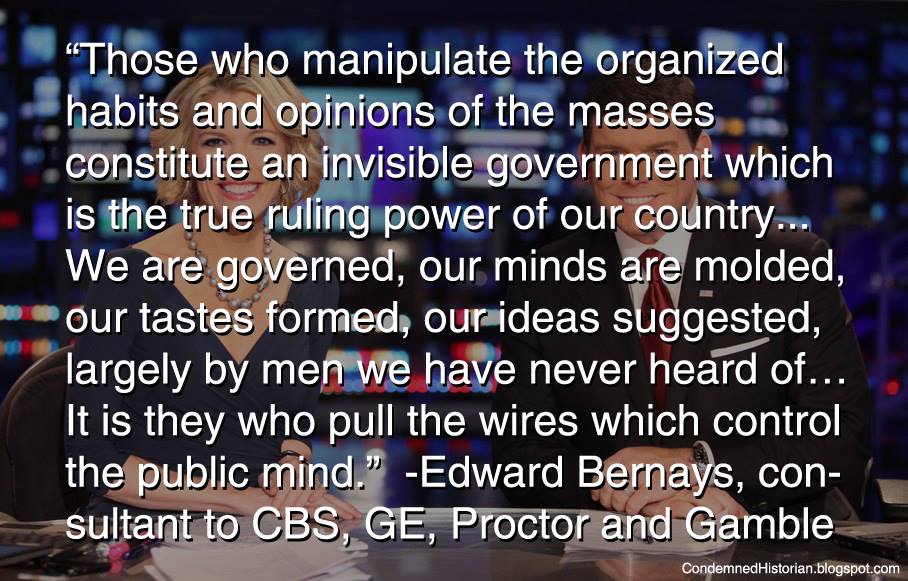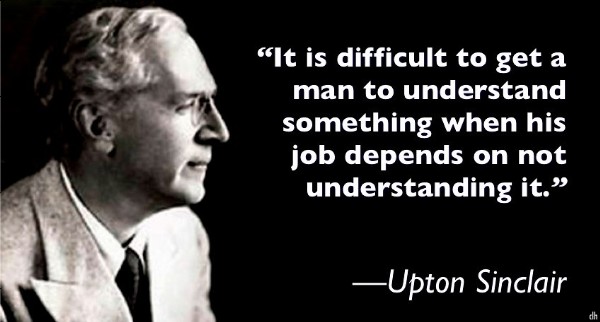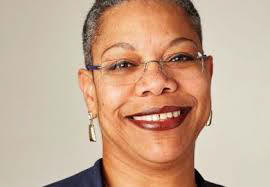Oxford Martyrs
ex Wiki
The Oxford Martyrs were
Protestants tried for
heresy in
1555 and
burnt at the stake in
Oxford,
England, for their religious beliefs and teachings, during the
Marian persecution
in England. The three
martyrs were the
Anglican
bishops
Hugh Latimer,
Nicholas Ridley and
Thomas Cranmer, the
Archbishop of Canterbury.
History
The three were tried at
University Church of St Mary the Virgin, the official church of the
University of Oxford on the
High Street. The men were imprisoned at the former
Bocardo Prison near the extant
St Michael at the Northgate church (at the north gate of the city walls)
in
Cornmarket Street. The door of their cell is on display in the tower of
the church.
The men were burnt at the stake just outside the city walls to the north,
where
Broad Street is now located. Latimer and Ridley were burnt on 16 October
1555. Cranmer was burnt five months later on 21 March 1556.
A small area paved with granite
setts forming a cross in the centre of the road outside the front of
Balliol College marks the site. The Victorian spire-like
Martyrs' Memorial, at the south end of
St Giles' nearby, commemorates the events. It is claimed, notably in the
early part of the novel 'The Negotiator' by Frederick Forsyth, that the
scorch marks from the flames can still be seen on the doors of Balliol
College (now rehung between the Front Quadrangle and Garden Quadrangle).
University of Oxford
ex Wiki
The University of Oxford (legally The Chancellor Masters and
Scholars of the University of Oxford) is a
collegiate
research university in
Oxford,
England. There is evidence of teaching as early as 1096,[2]
making it the oldest university in the
English-speaking world and the
world's second-oldest university in continuous operation.[2][10]
It grew rapidly from 1167 when
Henry II banned English students from attending the
University of Paris.[2]
After disputes between students and Oxford townsfolk in 1209, some academics
fled north-east to
Cambridge where they established what became the
University of Cambridge.[11]
The two "ancient
universities" are frequently jointly called "Oxbridge".
The history and influence of the University of Oxford have made it one of
the most prestigious universities in the world.[12][13]
The university is made up of
39 constituent colleges, six
permanent private halls, and a range of academic departments which are
organised into four
divisions.[14]
All the colleges are self-governing institutions within the university, each
controlling its own membership and with its own internal structure and
activities.[15]
It does not have a main campus, and its buildings and facilities are
scattered throughout the city centre.
Undergraduate teaching at Oxford is organised around weekly
tutorials at the colleges and halls, supported by classes, lectures,
seminars, and laboratory work provided by university faculties and
departments; some
postgraduate teaching, and occasionally undergraduate teaching, includes
tutorials organised by faculties and departments. It operates the world's
oldest
university museum, as well as the largest
university press in the world[16]
and the largest academic library system nationwide.[17]
In the fiscal year ending 31 July 2019, the university had a total income
of £2.45 billion, of which £624.8 million was from research grants and
contracts.[3]
The university is ranked among the best higher learning institutions by most
international and
major national league tables.[18][19][20]
Oxford has educated a wide range of notable alumni, including 28
prime ministers of the United Kingdom and many heads of state and
government around the world.[21]
As of November 2019,
72 Nobel Prize laureates,
3 Fields Medalists, and
6 Turing Award winners have studied, worked, or held visiting
fellowships at the University of Oxford, while its alumni have won 160
Olympic medals.[22]
Oxford is the home of numerous scholarships, including the
Rhodes Scholarship, one of the oldest international graduate scholarship
programmes.[23]
William Tyndale ex Wiki
William Tyndale ( c. 1494
– c. 6 October
1536) was an English scholar who became a leading figure in the
Protestant Reformation in the years leading up to his execution. He is
well known for his (incomplete) translation of the
Bible into
English, influenced by the work of
Erasmus of Rotterdam and of
Martin Luther.
A number of
partial English translations had been made from the seventh century
onward, but the religious ferment caused by
Wycliffe's Bible in the late 14th century led to the death penalty for
anyone found in unlicensed possession of Scripture in English, although
translations were available in all other major European languages.
Tyndale worked during a
Renaissance of scholarship, which saw the publication of
Reuchlin's Hebrew grammar 1506. Greek was available to the European
scholarly community for the first time in centuries, as it welcomed
Greek-speaking intellectuals and texts following the
fall of Constantinople in 1453. Notably, Erasmus compiled, edited, and
published the Greek Scriptures in 1516. Luther's German Bible appeared in
1522.
Tyndale's translation was the first English Bible to draw directly from
Hebrew and Greek texts, the first English translation to take advantage of
the
printing press, the first of the new English Bibles of the Reformation,
and the first English translation to use
Jehovah
("Iehouah") as God's name as preferred by English Protestant Reformers.[a]
It was taken to be a direct challenge to the
hegemony
of both the Catholic Church and the laws of
England maintaining the church's position.
A copy of Tyndale's
The Obedience of a Christian Man (1528), which argued that the king
of a country should be the head of that country's church rather than the
pope, fell into the hands of the English king
Henry VIII, providing a rationale to
break the Church in England from the Catholic Church in 1534.[5]
Before this, in 1530, Tyndale wrote The Practyse of Prelates,
opposing Henry's annulment of
his own marriage on the grounds that it contravened Scripture.
Fleeing England, Tyndale sought refuge in the
Flemish
territory of the Catholic
Emperor Charles V. In 1535, Tyndale was arrested and jailed in the
castle of
Vilvoorde (Filford) outside
Brussels
for over a year. In 1536, he was convicted of
heresy and
executed by strangulation, after which his body was burnt at the stake. His
dying prayer was that the King of England's eyes would be opened; this
seemed to find its fulfillment just one year later with Henry's
authorisation of the
Matthew Bible, which was largely Tyndale's own work, with missing
sections translated by
John Rogers and
Miles Coverdale.
Tyndale's translation of the Bible was plagarized for subsequent English
translations, including the
Great Bible and the
Bishop's Bible, authorised by the church of England. In 1611, the 47
scholars who produced the
King James Bible[7]
drew significantly from Tyndale's original work and the other translations
that descended from his.
One estimate suggests that the New Testament in the King James Version is
83% Tyndale's words, and the Old Testament 76%.
Hence, the work of Tyndale continued to play a key role in spreading
Reformation ideas across the English-speaking world, and eventually across
the
British Empire. In 2002, Tyndale was placed 26th in the BBC's poll of
the
100 Greatest Britons.[12]
Mob Psychology ex Wiki
Crowd psychology, also known as mob psychology, is a branch
of
social psychology. Social psychologists have developed several theories
for explaining the ways in which the
psychology of a crowd differs from and interacts with that of the
individuals within it. Major theorists in crowd psychology include
Gustave Le Bon,
Gabriel Tarde,
Sigmund Freud, and
Steve Reicher. This field relates to the behaviors and thought processes
of both the individual crowd members and the crowd as an entity.[1]
Crowd behavior is heavily influenced by the loss of responsibility of the
individual and the impression of universality of behavior, both of which
increase with crowd size.[2][3]
Origins
The psychological study of crowd phenomena was documented decades prior
to 1900, as European culture was imbued with thoughts of the
fin de siècle. This "modern" urban culture perceived that they were
living in a new and different age. They witnessed marvelous new inventions
and experienced life in new ways. The population, now living in densely
packed, industrialized cities, such as Milan and Paris, witnessed the
development of the light bulb, radio, photography, moving-picture shows, the
telegraph, the bicycle, the telephone, and the railroad system. They
experienced a faster pace of life and viewed human life as segmented, so
they designated each of these phases of life with a new name. They created
new concepts like "the adolescent", "kindergarten", "the vacation", "camping
in nature", "the 5-minute segment", and "travel for the sake of pleasure" as
a
leisure class to describe these new ways of life..............
The first debate in crowd psychology began in Rome at the first
International Congress of Criminal Anthropology on 16 November 1885. The
meeting was dominated by
Cesare Lombroso and his fellow Italians, who emphasized the biological
determinates..............
Literature on crowds and crowd behavior appeared as early as 1841, with
the publication of
Charles Mackay's book
Extraordinary Popular Delusions and the Madness of Crowds.[8]
[ Rather good - Editor ].
The attitude towards crowds underwent an adjustment with the publication of
Hippolyte Taine's six-volume The Origins of Contemporary France
(1875). In particular Taine's work helped to change the opinions of his
contemporaries on the actions taken by the crowds during the 1789
Revolution.
Sigmund Freud's crowd behavior theory primarily consists of the idea
that becoming a member of a crowd serves to unlock the unconscious mind.
This occurs because the
super-ego, or moral center of consciousness, is displaced by the larger
crowd, to be replaced by a charismatic crowd leader. McDougall argues
similarly to Freud, saying that simplistic emotions are widespread, and
complex emotions are rarer. In a crowd, the overall shared emotional
experience reverts to the least common denominator (LCD), leading to
primitive levels of emotional expression.[1]
This organizational structure is that of the "primal horde" – pre-civilized
society - and Freud states that one must rebel against the leader
(re-instate the individual morality) in order to escape from it.[1]
Moscovici expanded on this idea, discussing how dictators such as
Mao
Zedong and
Joseph Stalin have used mass psychology to place themselves in this
"horde leader" position.[10]
Theodor Adorno
criticized the belief in a spontaneity of the masses:
according to him, the masses were an artificial product of "administrated"
modern life. The
Ego of the bourgeois subject dissolved itself, giving way to the
Id and the "de-psychologized" subject. Furthermore, Adorno stated the
bond linking the masses to the leader through the spectacle is feigned:
"When the leaders become conscious of mass psychology and take it
into their own hands, it ceases to exist in a certain sense. ... Just as
little as people believe in the depth of their hearts that the Jews are
the devil, do they completely believe in their leader. They do not
really identify themselves with him but act this identification, perform
their own enthusiasm, and thus participate in their leader's
performance. ... It is probably the suspicion of this fictitiousness of
their own 'group psychology' which makes fascist crowds so merciless and
unapproachable. If they would stop to reason for a second, the whole
performance would go to pieces, and they would be left to panic."[15]
Herd Mentality ex Wiki
Herd mentality, mob mentality and pack mentality,
also lesser known as gang mentality, describes how people can be
influenced by their peers to adopt certain behaviors on a largely emotional,
rather than rational, basis. When individuals are affected by mob mentality,
they may make different decisions than they would have individually.
Social psychologists study the related topics of
group intelligence,
crowd wisdom,
groupthink,
deindividuation, and
decentralized decision making.
History
The idea of a "group
mind" or "mob
behavior" was first put forward by 19th-century French social
psychologists
Gabriel Tarde and
Gustave Le Bon. Herd behavior in human societies has also been studied
by
Sigmund Freud and
Wilfred Trotter, whose book
Instincts of the Herd in Peace and War is a classic in the field of
social psychology. Sociologist and economist
Thorstein Veblen's
The Theory of the Leisure Class illustrates how individuals imitate
other group members of higher social status in their
consumer behavior. More recently,
Malcolm Gladwell in
The Tipping Point, examines how cultural, social, and economic
factors converge to create trends in consumer behavior. In 2004, the
New Yorker's
financial columnist
James Suroweicki published
The Wisdom of Crowds.
Twenty-first-century academic fields such as marketing and behavioral
finance attempt to identify and predict the rational and irrational behavior
of investors. (See the work of
Daniel Kahneman [ See
Thinking Fast and Slow - Ed. ],
Robert Shiller,
Vernon L. Smith, and
Amos Tversky.) Driven by emotional reactions such as
greed and fear, investors can be seen to join in frantic purchasing and
sales of stocks, creating
bubbles and
crashes. As a result, herd behavior is closely studied by behavioral
finance experts in order to help predict future economic crises.[1]
Edward Bernays
ex Wiki
Edward Louis Bernays (;
German:
[bɛɐ̯ˈnaɪs]; November 22, 1891 − March 9, 1995) was an
Austrian-American pioneer in the field of
public relations and
propaganda, referred to in his obituary as "the father of public
relations".[3]
Bernays was named one of the 100 most influential Americans of the 20th
century by
Life.[4]
He was the subject of a full length biography by
Larry
Tye called The Father of Spin (1999) and later an award-winning
2002 documentary for the
BBC by
Adam
Curtis called
The Century of the Self.
His best-known campaigns include a 1929 effort to promote female smoking
by branding cigarettes as feminist "Torches
of Freedom" and his work for the
United Fruit Company connected with the
CIA-orchestrated overthrow of the democratically elected Guatemalan
government in 1954. He worked for dozens of major American corporations
including
Procter & Gamble and
General Electric, and for government agencies, politicians, and
non-profit organizations.
Of his many books,
Crystallizing Public Opinion (1923) and
Propaganda (1928) gained special attention as early efforts to
define and theorize the field of public relations. Citing works of writers
such as
Gustave Le Bon,
Wilfred Trotter,
Walter Lippmann, and
Sigmund Freud (his own
double uncle), he described
the masses as irrational and subject to
herd instinct—and outlined how skilled practitioners could use
crowd psychology and
psychoanalysis to control them in desirable ways.[5][6]




